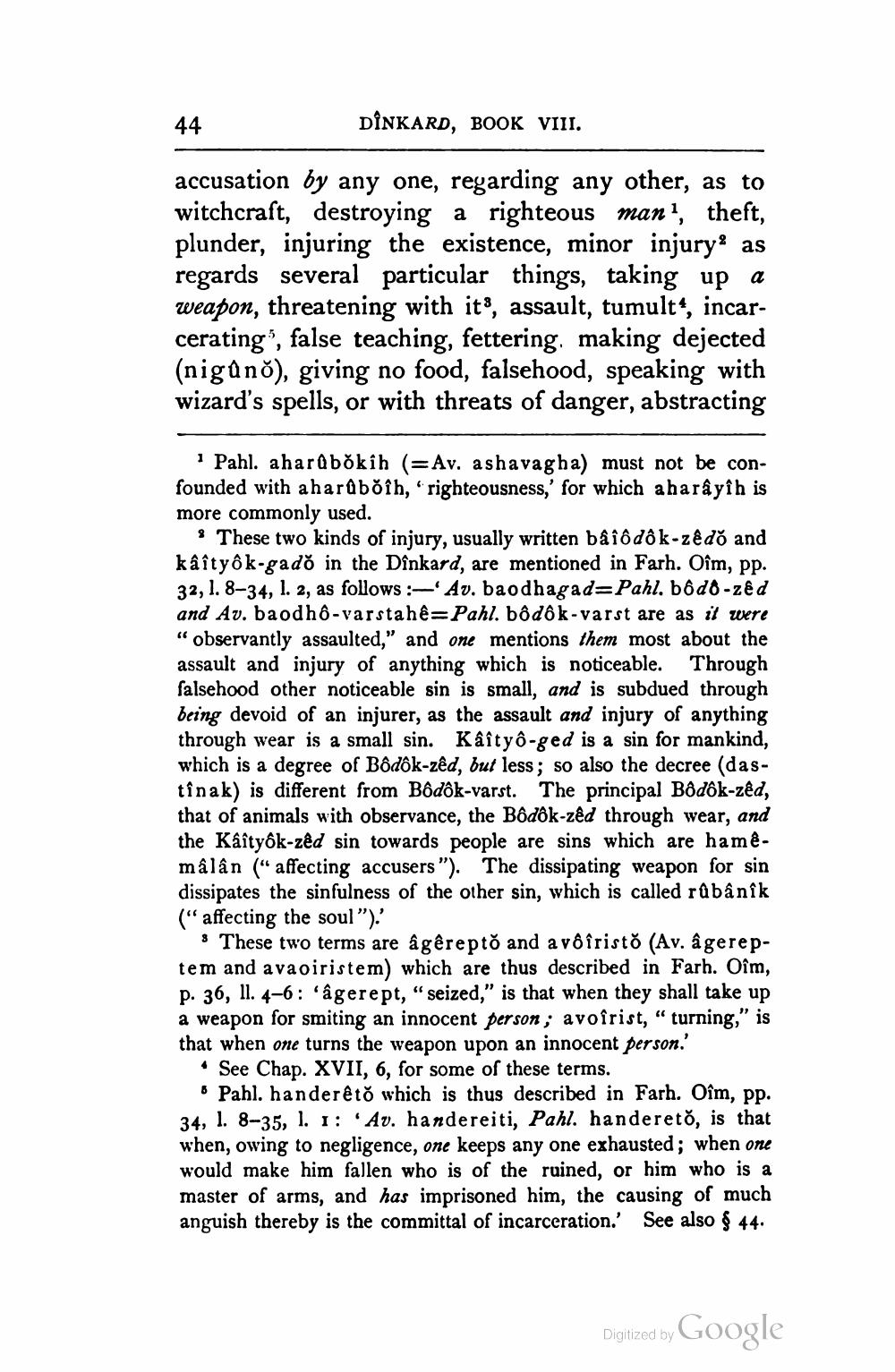________________
44
DINKARD, BOOK VIII.
accusation by any one, regarding any other, as to witchcraft, destroying a righteous man, theft, plunder, injuring the existence, minor injury as regards several particular things, taking up a weapon, threatening with its, assault, tumult", incarcerating', false teaching, fettering, making dejected (nigūno), giving no food, falsehood, speaking with wizard's spells, or with threats of danger, abstracting
i Pahl. ahar0bokih (=Av. ashavagha) must not be confounded with a haraboîh, righteousness,' for which a harayîh is more commonly used.
. These two kinds of injury, usually written bã îô dôk-zê do and kaityök-gado in the Dinkard, are mentioned in Farh. Oîm, pp. 32, 1. 8-34, 1.2, as follows: Av. baodhagad=Pahl. b6d8-zêd and Av. baodhô-varstahê=Pahl. bôdôk-varst are as it were “observantly assaulted," and one mentions them most about the assault and injury of anything which is noticeable. Through falsehood other noticeable sin is small, and is subdued through being devoid of an injurer, as the assault and injury of anything through wear is a small sin. Kâîtyô-ged is a sin for mankind, which is a degree of Bôdôk-zêd, but less; so also the decree (dastînak) is different from Bôdôk-varst. The principal Bôdôk-zêd, that of animals with observance, the Bôdok-zêd through wear, and the Kaîtyók-zêd sin towards people are sins which are hame. mâlân (" affecting accusers "). The dissipating weapon for sin dissipates the sinfulness of the other sin, which is called rûbânîk ("affecting the soul").
These two terms are âgerepto and a vôîristo (Av. âgereptem and avaoiristem) which are thus described in Farh. Oîm, p. 36, ll. 4-6: 'âgerept, "seized," is that when they shall take up a weapon for smiting an innocent person ; avoirist, “turning," is that when one turns the weapon upon an innocent person.'
. See Chap. XVII, 6, for some of these terms.
• Pahl. handerêto which is thus described in Farh. Oîm, pp. 34, 1. 8-35, l. 1: Av. handereiti, Pahl, handereto, is that when, owing to negligence, one keeps any one exhausted; when one would make him fallen who is of the ruined, or him who is a master of arms, and has imprisoned him, the causing of much anguish thereby is the committal of incarceration. See also $ 44.
Digitized by Google




